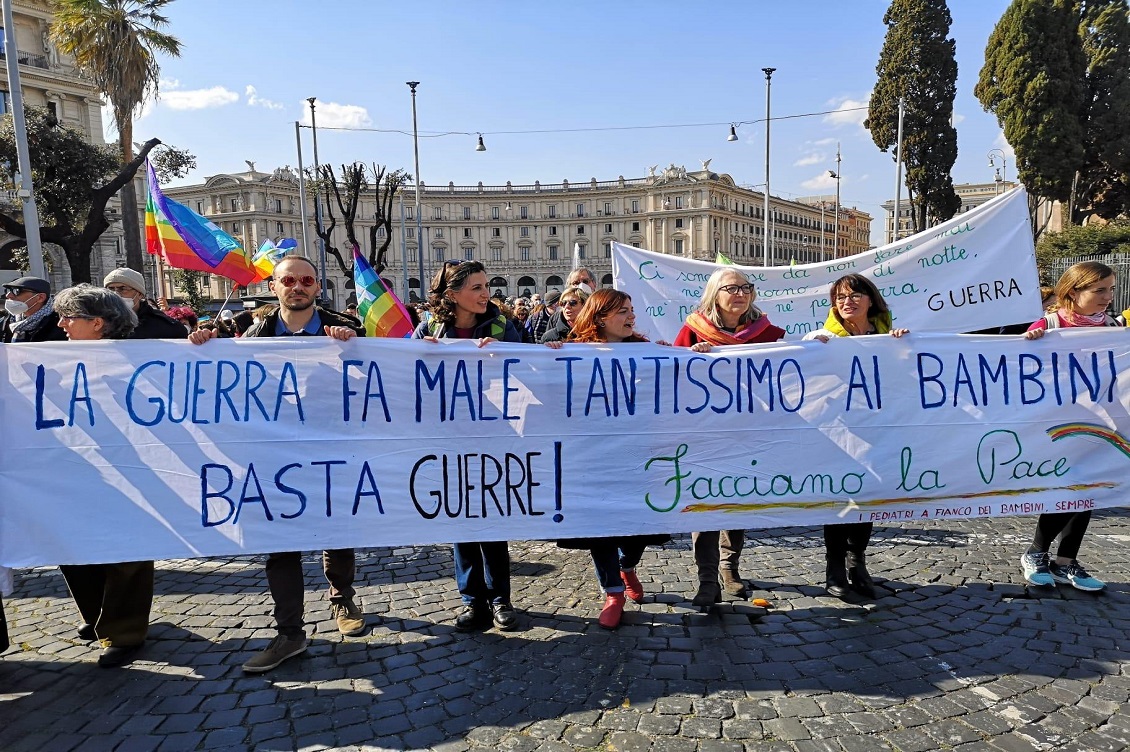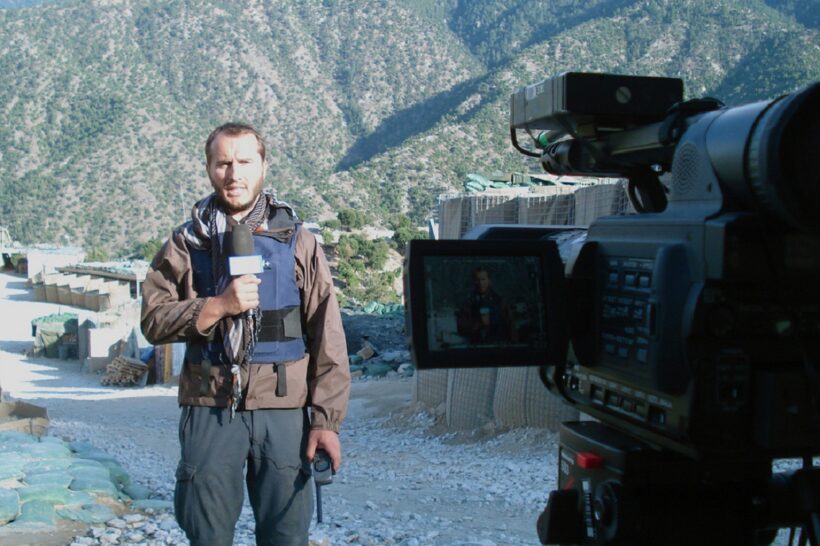When will the war in Ukraine end? What do Italians think about the conflict? What is the best approach, the military or the diplomatic? Moving crosswise between various themes and drawing on his long experience as a war correspondent, Nico Piro reflects on the current situation in Ukraine and possible ways out of a conflict whose end seems ever more distant.
“Do you want to simplify what is happening in Ukraine? Do you want to erase history? Do we want to reduce everything to the dichotomy between aggressed and aggressor? That’s fine, but now I ask: we have to go to phase two, but how can we make sure that people stop dying and Ukraine stops being destroyed?”
These are the words with which Nico Piro – a journalist, writer and documentary filmmaker with a long experience in the field, particularly in Afghanistan – takes stock, in a direct and concise manner, of the Ukrainian conflict. To provide some keys to interpreting the current situation, Nico Piro moves from welcoming refugees to modern history, from conscientious objection and pacifism to an analysis of the position of the Italian electorate and the indications that the ballot box has provided on what people think about the war. “I think Italians have been feeling the burden of the war from the very beginning. Especially since the gas increases came, the end of Russian tourism and imports, the damage to the economy, inflation, and so on,” Piro notes in this regard.
A sensitive issue that has been hovering since the beginning of hostilities is that of refugee reception, particularly with respect to migration policies understood in a broader sense. In this regard, Nico Piro also notes that there is some inconsistency: “I hope that all countries learn from this, people fleeing wars should be welcomed. I hope that solidarity with Ukrainian refugees does not cease, but also with refugees from other wars. The problem is that for it not to cease it must begin. And Crotone teaches us that this has not happened, except for a few episodes.”
According to the reporter, wars are complex things, but they stand on a very simple principle: adaptation. “I hit you and you hit me. I adapt to your blow so that it is not a lethal blow and you do the same. As long as this balance remains in place wars go on. Blitzkrieg wars exist only in the hopes of generals and dictators; see the case of Afghanistan, which is the archetype of contemporary conflicts that begin but do not end.”

So when will the war in Ukraine end? “I do not feel like making predictions,” Nico Piro replies, “because when the Pandora’s box of war is opened, the demons that come out of it have their own autonomy. However, I am convinced of one thing: saying ‘the only way is war’ is like taking a ball and throwing it into the roulette. But in the roulette there are two colors, red and black, and the ball does not necessarily land on the one we prefer. From Afghanistan to World War I, history teaches us that.”
The Campanian journalist therefore believes it is impossible to predict when the war will end, but he has an idea about how: “This conflict does not have a military solution. It only has a diplomatic solution, and the sooner we get to define and implement it, the sooner people will stop dying. Unfortunately, however, this seems to me to be an issue that no one is taking charge of; we continue to act as if it were a game of Risk without remembering that there are people dying in the midst of it.”
Heading toward the conclusion, Nico Piro tries to lay bare some aspects of Russia and Ukraine that help bring out details of these two countries that are often forgotten or ignored, fueling distorted images that certainly do not help in the peacemaking process. For example, the Russian pacifist movement and the phenomenon of conscientious objection “spread recently, especially after the extraordinary military service compulsion in September. But conscientious objectors, so-called resisters to arms, are also there in Ukraine.”
“It is not fair to Ukraine to paint it as a country in arms. Ukraine means ‘borderland,’ it is a country of remarkable complexity with different souls, from Russian to Polish,” Nico Piro concludes. “The simplified one is a narrative suitable to bellicose thinking. In my opinion it is not right to define it as a country that does not want to surrender, where the people want to fight until the end. I believe the people want simpler things: peace, bread and maybe even electricity and gas.”










